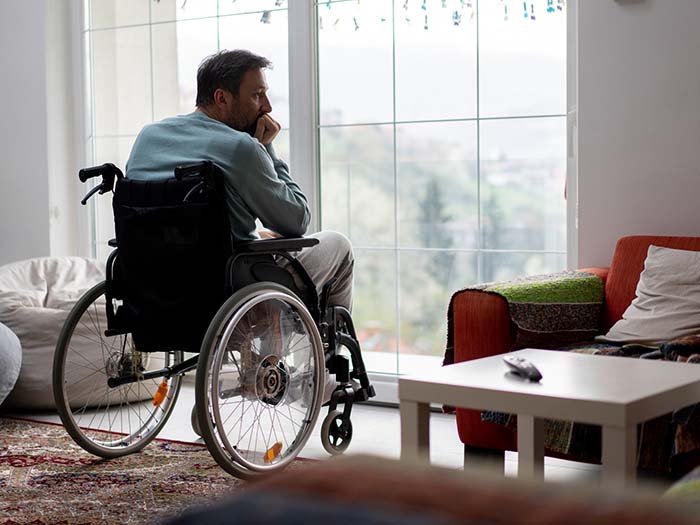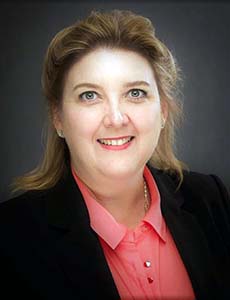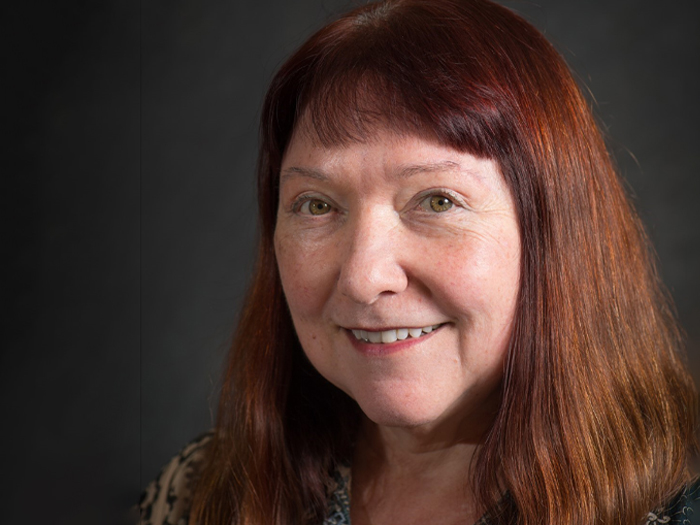Identifying Mental Health Comorbidities Can Be Invaluable in Keeping Injured Worker Recovery On Track

One in four adults in the U.S. suffer from a diagnosable mental health condition, yet mental health often takes a back seat to an injured worker’s medical conditions when a workers’ compensation claim begins.
And Pam Bloom-Pugliese, RN, director of product management at ODG by MCG Health says, “to not address [mental health] is a disservice to everyone.”
“Our mental health is part of us: How we’re feeling, how we’re coping, how we’re getting through our day is so critical,” she added. “If I broke my leg at work, if I’m not well, mentally, my recovery is going to be totally off track.”
On Thursday, September 21, Bloom-Pugliese and two additional experts will delve into the importance of factoring workers’ mental health into the recovery equation during the National Comp session, “Co-Morbid Mental Health Conditions Put Recovery at Risk: Look Past the Primary Diagnosis.”
Presenting on behalf of the medical and claims decision-support provider, ODG by MCG, Bloom-Pugliese will share evidence-based examples that illustrate the importance of getting injured workers the right health care — including mental health resources ― as efficiently as possible.
Timing Is Everything
When case managers receive initial notes from a doctor, Bloom-Pugliese recalls from her experience, “you’re looking at their medications, you’re looking at their history, trying to say, ‘what am I working with and how can I best help this person get back to work?’ ”
With the isolation many workers feel when they’re out on a claim due to an injury or disabling event, there’s no wonder their existing mental health conditions can be exacerbated or even triggered by the circumstances.
“And now they’re at home, and they’re not feeling well; maybe there’s opiates in the picture. This is the perfect storm where people start to get so focused on illness/injury and it’s hard for them to get better,” she continued.
Which is why, she said, the timing and delivery of evidenced-based care is everything.
“We all need to be focused on getting the people the right care at the right time,” she continued. “So many things get delayed in UR pre-authorization, [but] if there’s evidence to support [treatments], [we should] automate processes, and get workers to those [resources] quickly,” she said.
But Is Mental Health Covered Under a Claim?
As a provider of evidence-based guidelines for workers’ compensation medical benefits and disability duration guidance for both occupational and non-occupational disability, ODG does not take a stand on the matter of compensability for mental health conditions; instead, it simply provides medical necessity guidance for the treatment of it, Bloom-Pugliese noted.
Although each state dictates workers’ comp coverage, Bloom-Pugliese said what’s most important is that all parties involved in working through a claim are focused on making sure injured workers are receiving compassionate care.
“It’s about treating them as a whole person so that they can get the best care; they can get the benefit of getting the treatment their doctor ordered quickly,” she said.
Even when mental health is not covered under a workers’ comp or disability claim, many workers have benefits that they simply don’t know about such as employee assistance programs (EAPs).
“How many times have you [received] your benefits package envelope from a new employer and put it in a kitchen drawer?” she said. “People are just busy. They don’t have the time to open up that information and see what’s available to them.”
“So, it’s not even [about] accepting compensability and paying for treatment; that’s not what our discussion is about,” Bloom-Pugliese said. “It’s really about helping people utilize the resources that they have access to so that they can get better.”
A Paradigm Shift Toward Better Outcomes
When a worker’s mental health co-morbidities and social determinants of health cannot be fully addressed through a comp or disability claim, having someone on the care management team who can help explore other support avenues can be a game-changer.
“There may be social services, there may be EAPs, there may be community resources,” Bloom-Pugliese said. “Whatever is available, that’s what we need to uncover together.”
When mental health is not covered under their workers’ comp and disability umbrellas, Bloom-Pugliese said she’s seeing more companies offer to pay for a set number of telehealth visits to help injured or disabled workers get to a better headspace and build their mental health toolbox.
“It improves the outcomes on their musculoskeletal condition,” she said. “So there are benefits, and those are decisions that are made at a stakeholder level. They have to decide what they want to cover. There’s nothing that says that they can’t. It’s just a choice whether they choose to do it or not.”
During her National Comp session, Bloom-Pugliese will be joined by Michael LaCroix, medical director at The Hartford as well as Kathy Galia, chief clinical solutions officer for Paradigm, a care management organization specializing in helping workers recover from complex catastrophic injuries and diagnoses.
The teams at ODG by MCG and Paradigm have collaborated in the past to apply research-backed occupational care guidelines, Bloom-Pugliese explained.
Galia has also integrated the role of a clinical support specialist into Paradigm’s care delivery model. This integration helps uncover untapped resources to address all facets of a injured worker’s health, Bloom-Pugliese explained.
“And it’s had a tremendous impact on their outcomes,” Bloom-Pugliese said. “They’ve had major success with return-to-work as well as cost savings.”
Galia will delve into greater detail on those differences in outcomes during the session.
“Studies have proven that the outcomes for people who don’t receive support from the clinical support specialists are worse,” Bloom-Pugliese said. “And Kathy’s teams help catastrophic cases.”
Treat Injured and Disabled Workers Like Family
When she conducts trainings, Bloom-Pugliese encourages all parties involved in managing claims and providing care to treat every injured worker like a family member.
If they do, she said, “you’ll never make a bad choice or a bad decision because you want your family to get the right care. You want them to get it quickly. You don’t want them to get [treatment] that’s not based on evidence or might hurt them or harm them.”
Putting oneself in the shoes of injured workers, especially those with catastrophic injuries, can motivate workers’ comp payers to ensure that recovering employees receive both comprehensive and timely care, Bloom-Pugliese noted.
“Imagine they’re now home, taking pain medication; their whole life has just changed. And now if there is a delay in care, or maybe they’re not getting the right [care],” she said. “There are commercials every five minutes about ‘has something terrible happened to you?’ Injured workers are consuming all of this, and they are hurt. It’s really easy to get caught up in that if you don’t feel supported, and you don’t have the support that you need.”
Payers have the option to address issues that delay care or underestimate mental health co-morbidities, Bloom-Pugliese said. However, if these factors remain unaddressed, she noted, there’s a strong chance “you’ll see it in your bottom line.” &
 “Co-Morbid Mental Health Conditions Put Recovery at Risk: Look Past the Primary Diagnosis” will be held on Sept. 21 at 3:15p.m. Learn more here.
“Co-Morbid Mental Health Conditions Put Recovery at Risk: Look Past the Primary Diagnosis” will be held on Sept. 21 at 3:15p.m. Learn more here.











